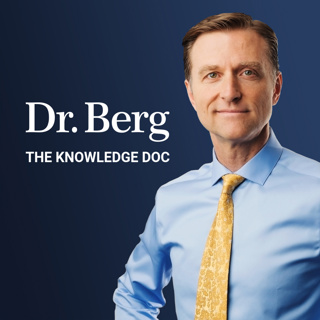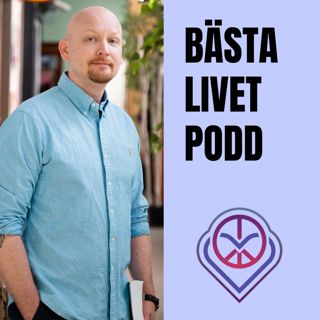
Intermittent Fasting Doubles Your Risk of Dying from a Heart Attack
Today, we’re going to talk about some of the recent news headlines claiming that fasting can wreak havoc on your cardiovascular system. This information was taken from an abstract (short summary) of an observational study sponsored by the American Heart Association. The study was based on a 24-hour dietary recall, where participants had to recall everything they ate over a period of time. The author has also conducted observational studies that directly opposed red meat, eggs, and cholesterol. Credible, peer-reviewed studies have shown numerous benefits of intermittent fasting and show that intermittent fasting actually supports cardiovascular health. 1. A single-blind randomized study examined the long-term effects of time-restricted eating with resistance training over 12 months. Participants saw a significant decrease in body mass, fat mass, and inflammation. They experienced increased insulin sensitivity and a more balanced lipid profile without adverse effects. Intermittent fasting was deemed safe and effective for improving cardiovascular function. 2. A non-randomized controlled clinical trial for time-restricted feeding and its effect on body composition and cardiovascular risk found that 18 hours of fasting significantly decreased waist circumference and cardiovascular risk. 3. A systematic review of intermittent fasting with cardiometabolic risk factors looked at four randomized controlled trials. The results demonstrated that intermittent fasting significantly reduced body weight, waist circumference, body mass, fat mass, blood pressure, cholesterol, triglycerides, and fasting insulin levels. 4. One study evaluated a 16-hour fasting eating pattern with an 8-hour eating window on breast cancer survivors for 8 weeks. Results demonstrated a significant decrease in cardiovascular risk. DATA: https://www.ncbi.nlm.nih.gov/pmc/arti... https://link.springer.com/article/10.... https://www.frontiersin.org/articles/... https://www.jacc.org/doi/full/10.1016...
31 Mars 20244min

Why Are There No Fat People in Colorado
Today, we’re going to look at the obesity rates in the United States. Why are there no fat people in Colorado? Areas of the US with higher Black, Latino, and American Indian populations have higher obesity rates. The elderly have higher rates of obesity as well. People with darker skin tones have more melanin, making it more difficult to absorb vitamin D. It also becomes more difficult to absorb vitamin D as you age. Chronic vitamin D deficiency can lead to obesity. The more overweight a person is, the more vitamin D they need. The characteristics of metabolic syndrome align perfectly with the symptoms of vitamin D deficiency. Vitamin D deficiency can create inflammation, high blood glucose, high blood pressure, and insulin resistance. Insulin resistance is the driving factor behind obesity. If you have insulin resistance, you have too much insulin. Insulin is a fat-storing hormone that causes you to gain weight. Vitamin D helps keep insulin sensitive, but vitamin D doesn’t work well if you have insulin resistance. Colorado is a high-altitude state situated several thousand feet above sea level. This means it’s closer to the sun. The closer you are to the sun, the more vitamin D you’re exposed to. Vitamin D exposure in Colorado could be the most critical variable influencing people's weight. DATA: https://www.ncbi.nlm.nih.gov/pmc/arti... https://www.sciencedirect.com/science... https://www.nature.com/articles/s4159... https://www.ncbi.nlm.nih.gov/pmc/arti... https://www.ncbi.nlm.nih.gov/pmc/arti... Check out the BOOK Here: https://www.amazon.com/dp/B0CY8K4MH9
30 Mars 20248min

He Should Have Been Dead 6 Years Ago - STAGE 4 CANCER
Please join me in welcoming Guy Tenenbaum. Six years ago, Guy was diagnosed with stage 4 cancer, also known as metastatic cancer. This means the cancer had spread to at least one organ. People with stage 4 cancer are typically given a few weeks to a few months to live. A cancer cell comes from a normal cell that has damage in the mitochondria. The cancer cell adapts, takes alternative energy pathways, and can live without oxygen. When Guy was diagnosed 6 years ago, he was told there was nothing that could be done, that it was too late, and to enjoy the rest of his life. His cancer had spread to his bones, lymph nodes, and lungs. Guy explains that he didn’t do any chemo or radiation because there was no treatment plan proposed to him. Guy discovered Thomas Seyfried's work and decided to see if it could help. He discovered the benefits of prolonged fasting and even completed a 40-day fast. Some people can do extended fasting, but if you’re unable to comfortably fast, the fasting-mimicking diet may be beneficial. Guy continues researching new protocols and trying to stay one step ahead of highly adaptable cancer cells. DOWNLOAD THE SUMMARY OF 21 WAYS TO REDUCE CANCER RISK: https://drbrg.co/3THk8Ij CANCER PROTOCOL LINK: https://www.survivefromcancer.com/tak... RESEARCH: https://www.ncbi.nlm.nih.gov/pmc/arti... https://jscholaronline.org/full-text/... https://www.ncbi.nlm.nih.gov/pmc/arti... https://pubmed.ncbi.nlm.nih.gov/28684... https://pubmed.ncbi.nlm.nih.gov/29108...
29 Mars 202425min

#1 Vitamin Deficiency in ALL Autoimmune Conditions
In this podcast, we’re going to talk about the critical roles of vitamin D and parathyroid hormone in helping to prevent autoimmune diseases. Many people with an autoimmune disease have had success with the Coimbra protocol, which involves taking high doses of vitamin D. The Coimbra protocol checks parathyroid hormone levels produced by the parathyroid gland, which is intimately involved in calcium regulation. If you have low calcium, the parathyroid gland pulls calcium from your bones and distributes it into the blood. Vitamin D helps with the absorption of calcium by a factor of 20x! Vitamin D resistance occurs when the body does not absorb vitamin D. You can have normal vitamin D levels in the blood yet still be deficient in vitamin D. Parathyroid hormone levels can tell you if that's happening. If you are not getting enough vitamin D, you will have trouble with calcium absorption. The parathyroid gland will have to overcompensate to combat vitamin D resistance. Usually, if you have high vitamin D, you’ll have low parathyroid hormone levels. Low vitamin D and high parathyroid hormone levels can signify vitamin D resistance. If you have vitamin D resistance, the solution is to take more vitamin D! The Coimbra protocol involves adjusting vitamin D until the parathyroid hormone lowers to a low to normal level. Vitamin D resistance is typically caused by a problem with vitamin D receptors or a genetic issue known as polymorphism. Other barriers to vitamin D absorption include: • Low sun exposure • Darker skin complexions • Old age • High stress • Location • Air pollution Pathogens have strategic methods of downgrading vitamin D receptors. Pathogens from tick bites can downgrade your receptors by a factor of 60x! Cancer cells, especially those affecting the colon and bones, downgrade vitamin D receptors to survive. Heavy metals can also downgrade vitamin D receptors. Magnesium and zinc can protect against high calcium levels in the blood, but your best defense is vitamin K2. KINDLE BOOK LINK: https://www.amazon.com/MIRACULOUS-RES...
28 Mars 20248min

What Happens If You Drank Celery Juice for 7 Days
In this podcast, we’re going to talk about the benefits of drinking celery juice. Celery is 95% water, so it doesn’t contain many nutrients. A 16-ounce glass of celery juice contains some folate (B9) and about 288 mg of sodium. However, celery juice contains four phytonutrients that have significant health benefits. 1. 3-n-butylphthalide This phytochemical can help repair damage caused by a stroke, reconstruct microcirculation, and has neuroregenerative properties. It also has antioxidant, anti-inflammatory, anti-apoptosis, and anti-thrombosis properties. 2. Apigenin Apigenin is one of the most studied polyphenols. It’s also found in parsley, onions, oranges, thyme, and basil. Apigenin acts as a muscle relaxer, lowers blood pressure, and improves sleep. It has anti-diabetic properties and has shown to be helpful for people with amnesia. 3. Coumaric acid Coumaric acid is anti-inflammatory, anti-ulcer, and anti-clotting. It supports healthy blood sugar levels and can also help with inflammation associated with arthritis. 4. Kaempferol Kaempferol is a potent antiviral, antibacterial, antifungal, and anti-inflammatory agent. Celery juice is best consumed in the morning on an empty stomach. Choose organic celery to make celery juice, and add lemon juice for taste if you’d like. DATA: https://www.ncbi.nlm.nih.gov/pmc/arti... https://benthamscience.com/article/12... https://www.ncbi.nlm.nih.gov/pmc/arti... https://www.ncbi.nlm.nih.gov/pmc/arti... https://www.ncbi.nlm.nih.gov/pmc/arti... https://www.hindawi.com/journals/ecam...
27 Mars 20243min

The # 1 Dementia Remedy (GAME CHANGER)
In this podcast, I'm going to share an incredible potential natural alternative to help slow the signs of dementia. The drug Lupron works to suppress certain cancers because it suppresses certain sex hormones. New research has also shown that Lupron can decrease dementia symptoms. Lupron is a potent suppressor of luteinizing hormone. Luteinizing hormone is made by the pituitary gland and signals the body to produce hormones like progesterone and testosterone. As we age, luteinizing hormone increases significantly. Patients with Alzheimer's have higher amounts of luteinizing hormone than people with normal cognitive function. High levels of luteinizing hormone significantly decrease progesterone. Progesterone is a very powerful neurosteroid, so it supports the development of neurons. Women have more progesterone, so they often have fewer adverse effects if they experience a traumatic brain injury. Progesterone minimizes inflammation in the brain cells, enhances serotonin, prevents apoptosis, and decreases blood-brain barrier leakage. After menopause, progesterone significantly decreases in women. For men, this decline can happen around 70 years of age. Melatonin can suppress luteinizing hormone, which indirectly increases progesterone. Research on mice has shown that melatonin and exercise may help halt dementia symptoms. DHEA and pregnenolone also work to suppress luteinizing hormone and increase progesterone. DHEA also suppresses cortisol. To decrease luteinizing hormone with melatonin, you'll need a much larger than average dose. You can also stimulate melatonin by going to bed with the lights turned down, increasing sun exposure, or sitting by a campfire. Around 95% of melatonin can be obtained from the sun's infrared rays. DATA: https://pubmed.ncbi.nlm.nih.gov/25310... https://en.wikipedia.org/wiki/Progest... https://www.ncbi.nlm.nih.gov/pmc/arti... https://www.ncbi.nlm.nih.gov/pmc/arti... https://www.lifeextension.com/magazin...
26 Mars 20248min

When NOT to Take Magnesium for Sleep and Anxiety
Let's take a look at magnesium for sleep or anxiety and when you may need to try something else instead. Sometimes, low magnesium is not the cause of your anxiety or sleep problems, and taking it can even worsen your symptoms. The second part of sleep is called REM sleep. People with higher levels of adrenaline and cortisol tend to wake up around 2:00 am during REM sleep. Magnesium will not fix this problem because the high cortisol levels are not caused by low magnesium. Stress and lack of exercise can cause poor sleep. Exercise, long walks, and physical labor can reduce stress and improve sleep. If you find that you have difficulty getting to sleep because of racing thoughts and overthinking, you may be low in vitamin B1. Carbs, sugar, and caffeine can deplete vitamin B1. Taking B1 before bed can provide an immediate sense of calmness. Always choose a natural B1 supplement, not synthetic. Instead of taking a melatonin supplement, it can be more beneficial to address why you do not have enough melatonin in the first place. Melatonin is inhibited by blue light. Darkness and infrared light recharge melatonin, so try getting sunlight or sitting by a fire. Vitamin D before bed can help you sleep. Magnesium will not work if you're very low in vitamin D and vice versa. If you're new to fasting and you go to bed hungry, it can interfere with your sleep. If fasting triggered your sleep problem, scale back, and begin fasting more gradually over time. Try incorporating more carbs at your last meal and increasing your carb intake to 50 grams per day. Having plenty of sea salt on keto and intermittent fasting is vital. Salt causes your body to retain fluid, so not only will it help you sleep, but it can also help prevent waking to use the bathroom. If you do need magnesium, try taking magnesium glycinate to help support sleep and reduce anxiety. DATA: https://www.ncbi.nlm.nih.gov/pmc/arti...
25 Mars 202410min

The #1 Collagen Tip for Amazing Hair, Nails, & Skin
In this podcast, we’ll discuss a very important amino acid: glycine. Collagen is a main component of connective tissues, tendons, ligaments, and cartilage. About ⅓ of collagen is made by glycine. Your body can make glycine, but unfortunately, it doesn’t make very much. If you're not getting it from the diet, you could be deficient. Unless you’re eating the skin and cartilage from meat, you’re probably not getting enough glycine. Glycine is needed to make the most important antioxidant for all of your cells, glutathione. Without enough glycine to make glutathione, you can’t detoxify your body. This can cause a buildup of toxicity, leading to inflammation. Glycine is a potent anti-inflammatory agent and is an essential building block for many enzymes and proteins. Here are some of the many important functions of glycine: • Makes heme in your blood • Important for gum health • Essential for DNA • Building block for catalase • Supports sleep • Supports the liver • Can help fix a leaky gut • Detoxifies uric acid • Supports blood sugar • Helps with weight loss • Reduces visceral fat Glycine can also turn into glucose to be used as fuel. Certain parts of the body, especially the brain, need a certain amount of glucose. If you’re not consuming glucose, your body can make it. Glycine is a precursor for glucose, but don’t worry about it bumping you out of ketosis. Glycine stimulates the hormone glucagon, which opposes insulin. If you’re not eating animals nose-to-tail, if you’re under stress, taking medication, drinking alcohol, or exposed to toxins, you can become deficient in glycine. You can increase your glycine intake by consuming gelatin! Try making your own gelatin using Knox Blox and using a natural sweetener like stevia. You can also take a glycine supplement. The average person needs about 4 to 10 grams of glycine per day. Bone broth and pork rinds can increase your glycine intake, but you need to consume a lot to get enough glycine. As we age, we need more glycine. Increasing glycine intake can potentially help people with osteoarthritis, osteoporosis, hair thinning, insomnia, gout, and kidney stones. DATA: https://pubmed.ncbi.nlm.nih.gov/20093... https://openheart.bmj.com/content/1/1...
24 Mars 20247min





















